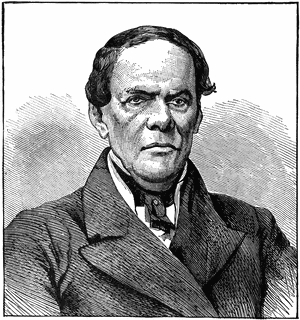Prior to the American Revolution, American settlers had already begun to move West. The West in 1775 meant moving to parts of North Carolina, Virginia, Kentucky and Tennessee. The British government tried to halt these advancements, fearing that Native American tribes would become hostile towards the settlers.
Expansion to the West continued during the Presidencies of Washington, Adams, and Jefferson. During their terms, farmers began to move into Illinois, Indiana, and Ohio. The Federal government established guidelines to govern the territories and encouraged citizens to move into these areas. As the
populations of territories grew they would become eligible for statehood.
Thomas Jefferson did more to encourage westward expansion than almost any other presidents. Under the Jefferson Administration, The Louisiana Purchase doubled the size of the nation. Jefferson hoped to provide the country with a Pacific shoreline. He felt that it would take 1,000 years for the U.S. to fully populate the territory. He was off by 900 years.
Historians have called the decades following the War of 1812, "The Era of Good Feelings". There was widespread nationalism and patriotic pride across the country. For the second time in the young country's short history, they were able to defeat the powerful army of Great Britain. For many in the United States, this was a sign that God had blessed the country, and the U.S. was destined for greatness. The Founding Fathers achieved an almost God-like statuses and Washington's birthday was celebrated as a national holiday. The Constitution and the Declaration of Independence were revered. Parties and banquets were held in celebration of the anniversary of the Battle of New Orleans.
During the mid 1800s, many Americans felt that their country had a Manifest Destiny, or a destiny from God. They felt that it would be their destiny to populate the American continent. Americans were obligated to spread the beliefs of Democracy and Christianity to the Pacific.
The American West held the hope for promise of a new and better life for many people. In 1837, the United States suffered a financial panic that led to many Americans losing their jobs and their farms. The value and price of land in the East had become very expensive, and the land out West was cheaper and offered a brand new start.
Destiny often gets credits for good things that happen, but never gets any blame. People will often credit destiny when something wonderful takes place. Couples might credit destiny for bringing them together. You could even make the case that it was your destiny to be born. If your parents met in college, you would not be here right now if your mom decided to attend a different school. Scientifically speaking you are unique, one of a kind. There will be nobody else like you ever again, and there was nobody else like you before. You are a one time deal. The fact that you are here is pretty amazing. Think about it, it means that for the past 3.8 billion years all of your direct ancestors were not eaten, drowned, squished, squashed, killed, stabbed, struck by lightening, or eaten by a shark before they were able to pass along their DNA.
However, when things go bad or tragic, destiny does not get the credit or the blame. When a car accident occurs, I do not think that the doctors will the victims family that it was their destiny to die that day. Destiny will get credit for giving a person their dream job but not giving them a pink slip.
Our Manifest Destiny is a high point in American History, but it is a dark period in Mexican history. Mexico once controlled Texas, California, Utah, Nevada, Colorado, New Mexico, and Arizona, states that are blessed with a variety of natural resources. Imagine how much different American history would be if we did not have access to the gold and oil found in California.
For H.W.
1. Give one political an American would have to support expanding to the West.
2. Give two economic reasons why the U.S. government would have supported Western expansion.
3. Define Nationalism:
4. How did Nationalism help fuel Western expansion?


